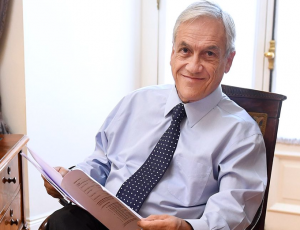People are wondering if former president and current presidential hopeful Donald Trump will pardon himself if he gets convicted in any of the several charges he currently faces and still manages take control of the White House in 2024.
Trump faces 78 felony charges in three separate cases at the moment after he was indicted for a third time by special counsel Jack Smith on Tuesday, for attempting to overturn the results of the 2020 election.
The 77-year-old was indicted on four federal charges in his latest indictment. If he is convicted in any of the charges, he could be looking at decades to hundreds of years in prison.
Can Donald Trump run for office if he is convicted?
Trump has continued his presidential campaign, showing no signs of slowing down when it comes to competing for a second non-consecutive White House term. The indictments have actually boosted his approval numbers.
Also Read | ‘Judas Pence’ trends after ex-VP lauds Jack Smith’s indictment against Donald Trump
As for whether he can run for office if he is convicted, yes he can since nothing in the Constitution that specifically bars him from doing this. This is also partially because no US president had ever been criminally charged before this. As a result, Trump’s situation is without any precedent.
The last instance that comes even remotely close was in 1920, when socialist candidate Eugene V. Debs ran for the White House while imprisoned for sedition for protesting US involvement in World War I. He received 3.4% of the electorate at that time, which is 913,000 votes.
Can Trump pardon himself if he is convicted and elected to office?
While presidents typically have the power to grant clemency for federal crimes under the Constitution, the constitution does not mention anything about the authority to pardon themselves from similar crimes.
Also Read | Who is Will Hurd? Former GOP congressman gets booed off stage for criticizing Donald Trump
However, it should be pointed out that the president’s unique power only extends to federal crimes. This effectively means that if Trump was to free himself from the charges, he will not be able to do so in the indictment he faces in Manhattan court, where he has been charged of falsifying business records to conceal hush-money payments to two women.
He can try to use that power to grant himself clemency from any federal convictions related to his Tuesday charges or the 40 felony counts he faces from his alleged hoarding of national security documents. “Whether he can do so is untested. The Supreme Court may have to weigh in,” UCLA law professor Richard Hasen, a leading election law expert, told CNN.
“There is not a clear-cut answer,” Paul Schiff Berman, a constitutional law expert at the George Washington University Law School, told NY1. “Most constitutional scholars believe that probably the answer is no, you can’t pardon yourself, because pardoning is meant to be an act of grace bestowed on someone else.”






